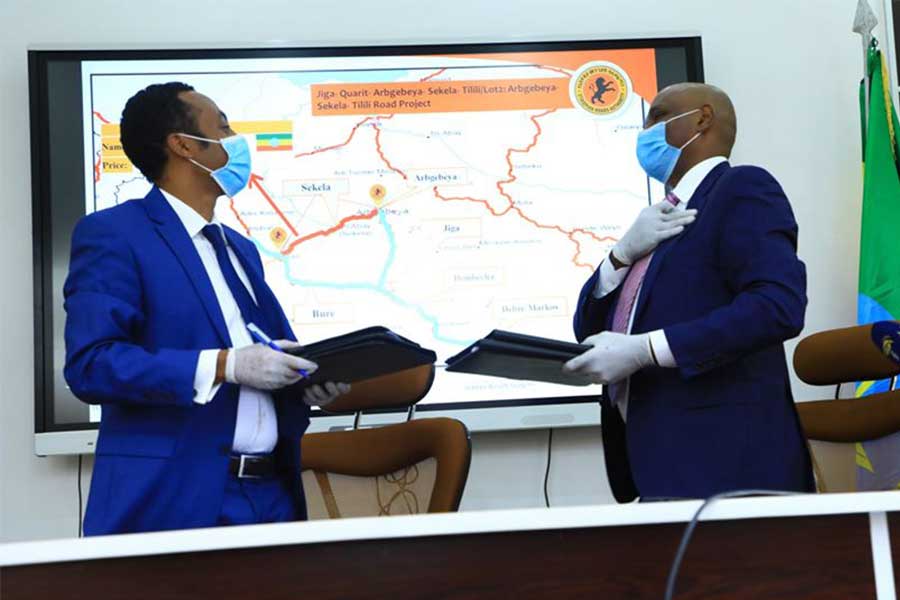
Fortune News | Jun 14,2020
Temera Tigabu was born and raised on the cliffs of the Simien Mountains, some 830Km north of the capital.
The last child to a family of four, she says growing up in the mountains made her upbringing different than most.
Her house, located just outside of Simien Mountains National Park, gave her special access to the park's various features. She shared the neighbourhood with extremely rare animals such as the Walia Ibex, Gelada baboon and the Ethiopian wolf.
It was not only Temera’s family who lives outside the border of the park. There is a village that has around 20 households who were all farmers.
Temera, after attending her primary education in a nearby school, went to Debark town, 100Km from Gonder, to pursue her education, as there were no high schools in her area.
Since the town was a two-hour drive from the Park, she stayed with relatives. She continued her education at Debark managing to get a diploma in household electric installation.
As soon as she graduated two years ago, she went back to her home village, and she managed to secure a job at Simien Lodge as a waitress, the only permanent tourist accommodation available inside of the Park's boundaries.
"Though it was not my field," said Temera, "I was given priority, as I was from the area."
It was not only her that benefited from the Park but others from her village too. The Lodge opened in 2003 and employs around 40 people, almost all of whom are from the area. Besides, she says many others from her area became scouts and tour guides.
The Park that brought up Temera also became her source of living. She says her closeness to the Park got deeper as she matured.
She was also one of the people that came to the rescue when the Park caught fire back in March 2019. The wildfire blazed through 753ha, destroying the vegetation and natural habitat of the wildlife.
After raging for almost two weeks, the fire was put under control after a campaign of rescue efforts that included fire fighting planes from Israel.
"It hurt to see the Park burn," said Temera. "The mountains are precious, and they need to be protected."
There are around an estimated 900 Walias at Simen Mountains National Park.
Simien Mountains National Park, which was established in 1969, has over 30 large mammal species and 180 bird species, six of which are endemic.
Covering an area of 412 square kilometres, besides housing five endemic mammals, the Park is also home to animals like leopards, caracals, wild cats, spotted hyenas and jackals.
Besides its animals, the Park's biosphere is also a main attraction for tourists. The steep cliffs formed by volcanic eruptions and the ongoing processes of uplifting and erosion have created unique and exotic landscapes. The cool climate at the altitude that rises over 4,000m grows African alpine forests, wilderness forests and alpine vegetation.
The Park, which is called one of the most spectacular landscapes in the world, was inscribed on the World Heritage List in 1978.
However, the site was added to the World Heritage in Danger list in 1996 due to the impact of a new road that was built through it, excessive cattle grazing and agricultural encroachment, all causes for the drop in the number of Walia Ibex, Simien foxes and other large mammal populations.
At the time the site was registered on the World Heritage in Danger list, the number of Walia had decreased from thousands to just 150, while the Red Fox population reached as lows as 20, down from several hundred.
“In recognition of the great and immediate danger, the Park, in partnership with the surrounding community, made great efforts to reverse the impact,” said Abebaw Azanew, warden of the Park.
It was later removed from the Danger list in 2017 in recognition of improvements in its management and the measures that were taken to reduce overgrazing and visitor impact.
One of the great achievements was freeing the Park from human settlement. The Park had people living in five weredas, namely Aderkay, Debark, Tselemet, Beyeda and Janamora.
“After reaching an agreement with the population living in the Park, we were able to move them out,” said Solomon Worku, communication officer at Ethiopian Wild Conservation Authority (EWCA). “While there are people living very close to the borders, there are no people who have actually settled in the Park.”
The number of Walia has increased to 900, while the number of Red Foxes and Gelada baboons has reached 130 and 20,000, respectively, according to the latest animal census.
“A lot of initiatives have been taken to help in the conservation of the Park by the state and environmental NGOs,” said Abebaw.
The latest initiative has brought the beer company Heineken Breweries S.C. to the Park. The brewery, in partnership with EWCA, aims to consolidate and develop cooperation to increase the number of Walias in the Park.
“Heineken, in addition to fulfilling its corporate responsibility, decided to take part in the conservation of the Park, as it felt that it had a special duty to contribute to the protection of Walia,” said Fekadu Beshah, external relations and sustainability manager at Heineken, who uses Walia as a brand for one of its beers.
The company signed a memorandum of understanding with the Authority to implement a project that would last three years. The project assists in three areas.
The first area of the project deals with the planting of indigenous trees in the Park that is considered Walia's primary feed. The trees will largely be planted in the areas where the animal lives.
The second area the initiative covers is strengthening the Park's security. Heineken will provide funding for equipping scouts with the necessary tools as well as building various scout posts in the park. Currently, there are around 60 scouts responsible for protecting the Park, while there are 18 scout camps in the Park.
The third area of Heineken’s assistance for the Park is supporting the community who lives around the Park.
"We want the people who live around the area to benefit and engage in various income-generating activities such as seedling nursing," said Fekadu.
"We warmly welcomed their initiative, as it was the first and could be an example for others to follow," said Solomon.
Heineken, who paid around one billion Birr in taxes in the last fiscal year, entered the Ethiopian market in 2011 following the acquisition of Harar and Bedele breweries. It has the second biggest share of the beer market, next to BGI Ethiopia, and produces around 5.5 million hectolitres of beer a year.
This is not the first time the global company, Heineken, got involved in conservation measures. In 2017 the company that produces Tiger Beer in Asia also partnered with wilderness conservation authorities in India in a bid to save the endangered tigers.
The Authority is also working on bringing other companies in Ethiopia to chip in for the protection and conservation of animals and places the companies use as their brand names.
“There are hundreds of business organisations from banks to small businesses that use wildlife as their names and brands,” said Solomon. "If these companies manage to help in any form, they can make a significant difference."
For this purpose, the Authority is preparing a forum and has called around 20 such institutions to consult on the issue.
In Ethiopia, there are 27 national parks and sanctuaries. About 32,400 tourists visited the Simien Mountains in the past fiscal year and generated seven million Birr in revenue.
Leah Blezard, a global health professional from Canada, was one of the tourists that came to the Simien Mountains hoping to get a glimpse of the mountain creatures.
"This is my second time coming to Ethiopia," said Leah, who brought the other three members of her family on her return. "Simien Mountains just has a breathtaking landscape, and the site is on my top tourist destinations."
The natural attractions remaining as they are, a lot could be improved to make the place more suitable for others, she adds.
Easier availability of foreign currency means better-developed infrastructure, as well as improved forest conservation measures, which can attract a lot more tourists and make them stay and spend money here, according to the tourist.
"The initiative taken by Heineken is reputable, and I am thrilled to see it take root in Ethiopia," she added.
Experts in the area also believe that the venture of profit-making businesses into environmental protection is something to be recognised.
Such measures are generally called payment for ecosystem services, and while there are other similar projects in the country, the practice is in its infant stage, according to Amare Bantider (PhD), a lecturer at Addis Abeba University's College of Development Studies.
“Payment for ecosystem services sets standards for business entities in social impact assessments as well as corporate responsibilities,” added Amare.
Also, such endeavours bring healthy competition to such areas and would lead to creating a greater positive impact on the environment, according to Amare.
Temera is also excited about the project and is very hopeful about the changes it could bring with it.
"We're always delighted when anyone extends a helping hand to conserve the Simien Mountains," said Temera. "I hope to see more companies doing their fair share to conserve the environment."
PUBLISHED ON
Sep 08,2019 [ VOL
20 , NO
1011]

Fortune News | Jun 14,2020
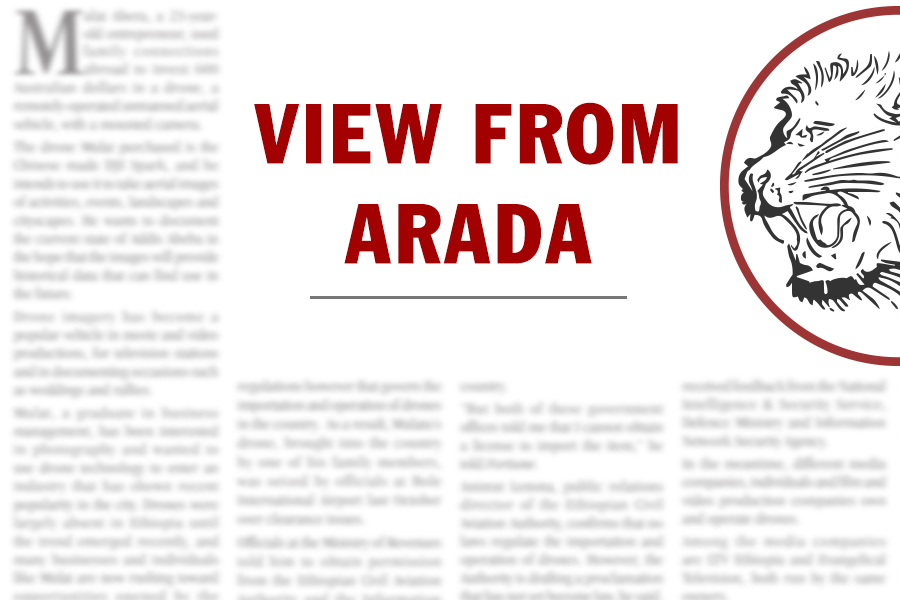
View From Arada | Jan 11,2020

Radar | Apr 24,2023

Radar | Aug 26,2023
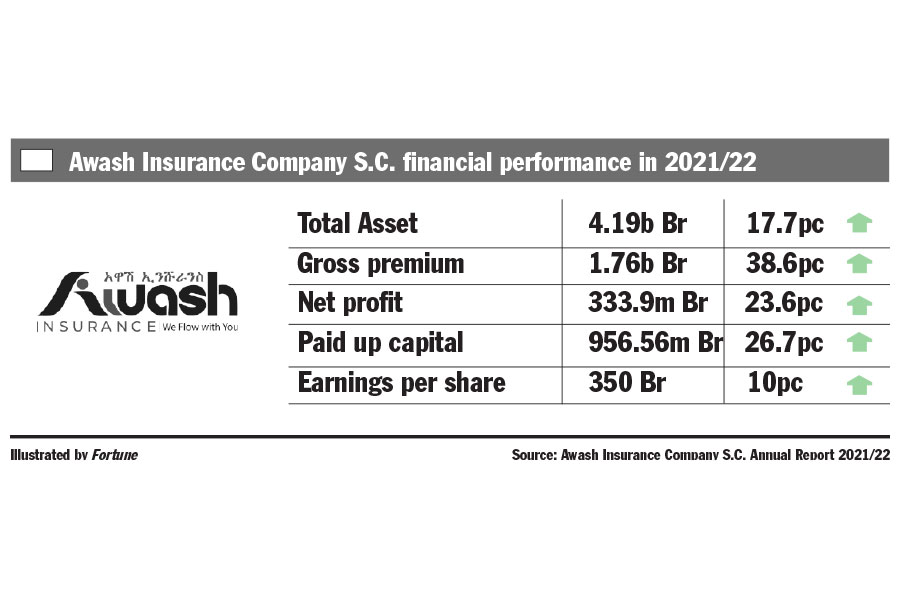
Fortune News | Jun 10,2023

Viewpoints | Dec 02,2023
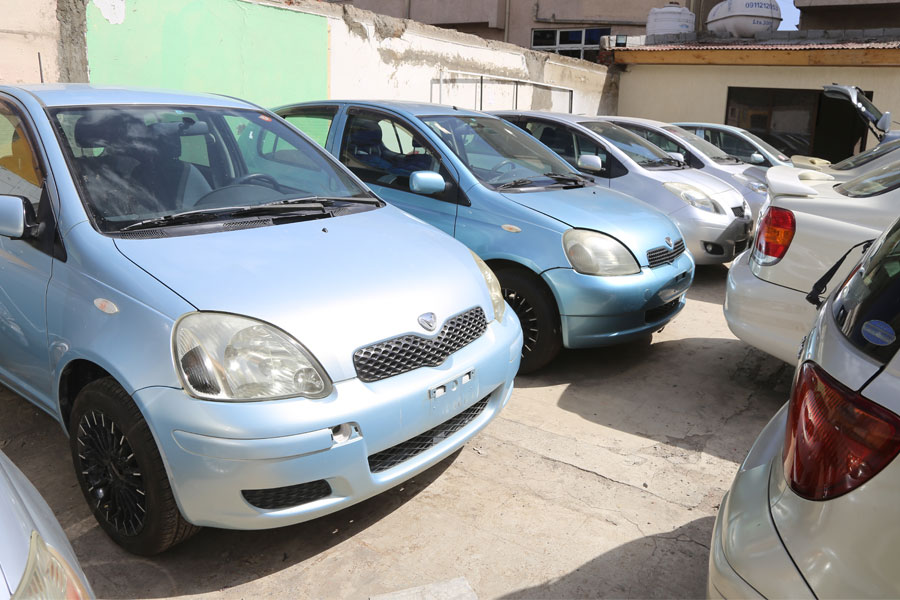
Agenda | Mar 16,2019
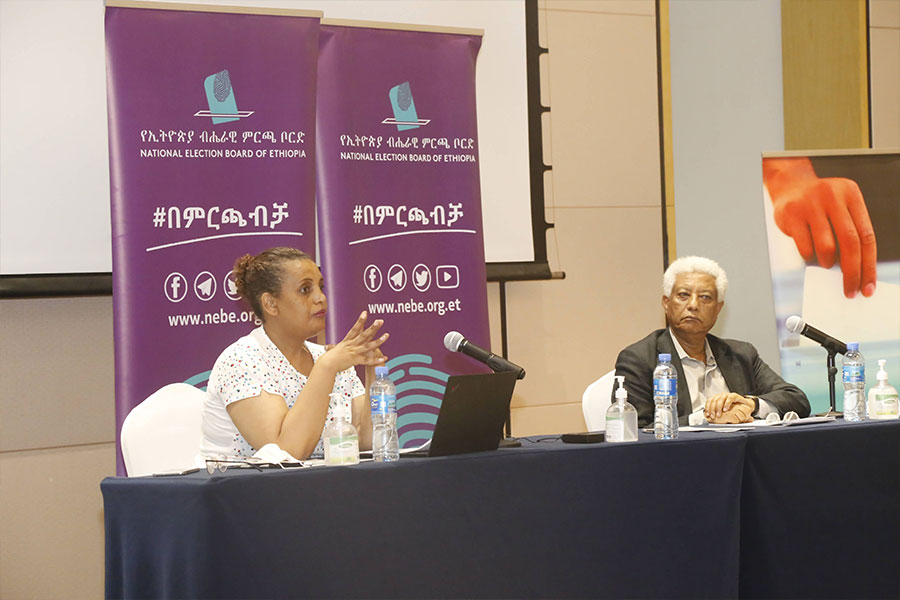
News Analysis | Jun 19,2021

Fortune News | Jun 11,2022

Fortune News | Mar 28,2020

Dec 22 , 2024 . By TIZITA SHEWAFERAW
Charged with transforming colossal state-owned enterprises into modern and competitiv...

Aug 18 , 2024 . By AKSAH ITALO
Although predictable Yonas Zerihun's job in the ride-hailing service is not immune to...

Jul 28 , 2024 . By TIZITA SHEWAFERAW
Unhabitual, perhaps too many, Samuel Gebreyohannes, 38, used to occasionally enjoy a couple of beers at breakfast. However, he recently swit...

Jul 13 , 2024 . By AKSAH ITALO
Investors who rely on tractors, trucks, and field vehicles for commuting, transporting commodities, and f...

Oct 18 , 2025
The political establishment, notably the ruling party and its top brass, has become p...

Oct 11 , 2025
Ladislas Farago, a roving Associated Press (AP) correspondent, arrived in Ethiopia in...

Oct 4 , 2025
Eyob Tekalegn (PhD) had been in the Governor's chair for only weeks when, on Septembe...

Sep 27 , 2025
Four years into an experiment with “shock therapy” in education, the national moo...